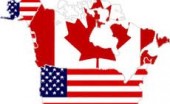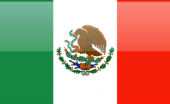Molly Minturn - My family is heartbroken to share that my father died in surgery on Monday, Feb. 10. It…
Quebec 2010 budget and economy
Written by Diana Thebaud Nicholson // December 3, 2010 // Economy, Health & Health care, Public Policy, Québec, Taxation // Comments Off on Quebec 2010 budget and economy
Quebec corruption probe reaches from hard hats to high-rise offices
(Globe & Mail) Capping a wild week in which Quebec Liberals, union leaders, police officers and Crown prosecutors all scrambled to deal with a growing crisis of confidence in the province’s institutions, the National Assembly adopted a code of ethics that sets strict conflict-of-interest rules and establishes a provincial ethics commissioner. It also requires Mr. Charest to forfeit a supplemental salary that his party had long provided for him.
2 December
Economic and Financial Update
“We are staying on course: budgetary balance will be achieved within three years”
– The Québec Finance Minister
26 October
Mafia big player in Que. economy, book says
Exposé says more than 600 Montreal businesses pay Mafia fees
(CBC) The construction industry, in particular, is closely knit to organized crime, with many business leaders paying a “pizzo,” or fee, equivalent to five per cent of their contracts, wrote Noël and Cédilot in their French-language book called Mafia Inc.
10 September
Quebec’s economy lags but still poised for highest growth in 10 years: RBC Economics
/CNW/ – Quebec’s economy is projected to grow by 3.0 per cent in 2010 and 3.1 per cent in 2011 – growth rates that have not been reached in 10 years, according to the latest RBC Economics Provincial Outlook report.
“We expect Quebec’s economy to remain resilient in the period ahead with strong contributions in non-residential construction and mining,” said Craig Wright, senior vice-president and chief economist, RBC. “Despite some of its sub-sectors continuing to face challenges, the province’s manufacturing sector, overall, could well add to growth for the first time since 2005.”
28 June
Minister Clément Gignac announces the 2010–2013 Québec research and innovation strategy
Called Mobilize. Innovate. Prosper., this new phase of the QRIS represents over $1.16 billion in investments.
14 April
Jeffrey Simpson: It’s little wonder protests follow difficult decisions in Quebec
That budget was the toughest in recent memory. It did what Quebec governments had systematically refused to do for a long time: reduce the increase in spending to 2.8 per cent from 4.6 per cent and raise revenues through a medical-visit fee, a sales-tax increase of two points and, later on, higher hydro rates.
The budget, in the words of many Quebec commentators, struck many “sacred cows” all at once in an attempt to get a grip on the province’s fiscal situation by eliminating its deficit and slowing down the growth in its debt, the highest in Canada.
Much of what the Charest government is trying was proposed a while back by a group of prominent Quebeckers of different political persuasions. They published a document called “Pour un Québec lucide,” and were quickly nicknamed the “lucidistes.” The best known was none other than Mr. Bouchard.
13 April
Jacques Ménard: Quebec budget is a good first step toward fixing the system
The government is making brave and much-needed decisions
By bringing down this budget, the government has shown itself capable of accurately reading the situation and taking bold action, even as it counts on Quebecers’ maturity. The government will now have to deliver on its commitment by redefining aspects of our public system. And all of us will have to be there, too, to make sure it does exactly that and to support it in its task.
Jacques Ménard is chairman of BMO Nesbitt Burns, and president of BMO Financial Group, Quebec
11 April
Up to 50,000 protest Charest’s tax hikes
Quebec’s ‘silent majority’ calls for cleanup of government spending
31 March
Viewpoint on the debt of the Quebec government
by David Descôteaux
(MEI) After recording a current deficit of $4.5 billion in 2009-2010, the Quebec government has just announced a series of measures intended to restore public finances. At the heart of its concerns is the government’s growing debt. Some people feel it has reached an alarming level, whereas others are minimizing the scope of the Quebec debt. Who is right? The Montreal Economic Institute updates its Quebec debt clock
Conference Board of Canada: 2010 Quebec Budget: Honesty is the Best Policy
In its 2010 budget, the Quebec government presents a clear and honest view of the dire fiscal situation that the province currently faces. For fiscal year 2009–10, the province is slated to post its largest deficit—$4.3 billion—since the recession of the early 1990s, and that number will rise to $4.5 billion in 2010–11. More troubling, Quebec expects its gross debt to rise to more than half of provincial GDP through the near term, peaking at 55 per cent in 2012. By 2011–12, debt-servicing costs will eat up nearly $8 billion of Quebec’s provincial budget.
Quebec maintains its unsustainable ways
(Gazette editorial) Finance Minister Raymond Bachand has made a half-hearted effort to keep the government of Quebec from sinking under the weight of its free-spending ways.
Could it be that he and Charest tried to control their spending, for a while, but that the habit was just stronger than they were? That they were powerless before their addiction? It would have taken real courage for Bachand and Charest to have reined in the second half of the government’s two-year, $15-billion “action plan” of spending for so-called economic stimulus. We believe that such spending often digs us deeper – sometimes literally – into the deficit hole, for little reward. On the other hand it is true that Quebec highways and bridges need plenty more work. Still, considering the pace of economic recovery, we believe that a substantial chunk could have been hacked away from this year’s $8.2 billion in stimulus.
But the real money goes, as the minister’s advisory committee noted, on family services – notably our $7 daycare – and on social services generally, followed by transportation (road-building rather than public transit) and then on “economic development” subsidies, farm subsidies, and so on.
There are plenty of places where we could cut spending. But first we’d have to admit that we have a problem.
30 March
Quebec budget hikes fees, sales and fuel tax
Spending cut from 3.2 to 2.8 per cent to pay down $4.5B deficit
Quebecers are being forced to bear an even bigger tax burden, with a slew of new fee hikes, including for health-care services, as the Liberal government wrestles with a looming $4.5-billion deficit.
Tuition and service-fee hikes, gas and sales tax increases, and health-care fees are part of the government’s desperate push to get its spending under control, and get its books out of the red.
Finance Minister Raymond Bachand tabled his 2010-11 budget in the Quebec legislature on Tuesday afternoon, announcing the government will boost the provincial sales tax by another percentage point to 9.5 per cent as of Jan. 1, 2012; will increase fuel taxes by one cent a litre in each of the next four years; and will introduce an annual health fee that will rise to $200 by 2012.
No sacred cows in Quebec, Bachand says after delivering budget
The province’s top economists called for a “cultural revolution” in the way Quebec spends and finances itself. Well, the revolution has started – but slowly.
Despite calls for swift action on many of Quebec’s sacred cows – from frozen university tuition rates to giveaway hydro power – the government yesterday chose to tread softly on holy ground in the short term.
That means Quebec is not signing on to some of the more radical ideas tossed around over the last five months of budget consultations, such as slapping tolls on highways, taxing lottery winnings or asking parents to pay the real costs of child care.
In the big picture, Quebec will continue to have 26 per cent more services than Ontario does, even though our collective wealth is actually 14 per cent lower than that of our neighbour.
Quebec will, starting in 2014, gradually raise the price of electricity to reach an increase of one cent per kilowatt hour by 2018. By then, it will represent $1.6 billion in revenue a year.
The same goes for another of the untouchables: university tuition. Bachand said he’s lifting the 14-year freeze as of the fall of 2012. The details remain to be worked out at a meeting of the various parties, but it was a principal demand of a panel that included former Parti Québécois premier Lucien Bouchard, business leaders and retired rectors.
Mining duties will be revised upward, with new rates coming into effect tomorrow. There is vague talk in the budget of a royalty on water used by big industry and promises to abolish or merge 28 organizations or funds. Spending levels are coming down.
Quebec budget tackles climate change
New measures to combat climate change provide for investments of $72 million over three years and include $30 million for the development of a made-in-Quebec electric bus along with $24 million for the marketing of carbon-certified products.
And, included in a three-year, $1.1 billion package for research and innovation, are pilot projects to advance green technologies. They focus on developing more environmentally-friendly aircraft and, in the pulp-and-paper sector, developing new products such as biofuels.
Other provisions include the launch of a previously announced water royalty and measures to remove freon systems from hockey rinks.
Health-care ‘contributions’ are going to hurt
The government described the contribution as a “simple and effective way to provide substantial funding without demanding an excessive effort on the part” of taxpayers.
About 3.2 million households will pay the fee. In 2012-2013, it will generate $945 million. The money will go to a health fund and will be allocated to health institutions “on the basis of their productivity and results.”



